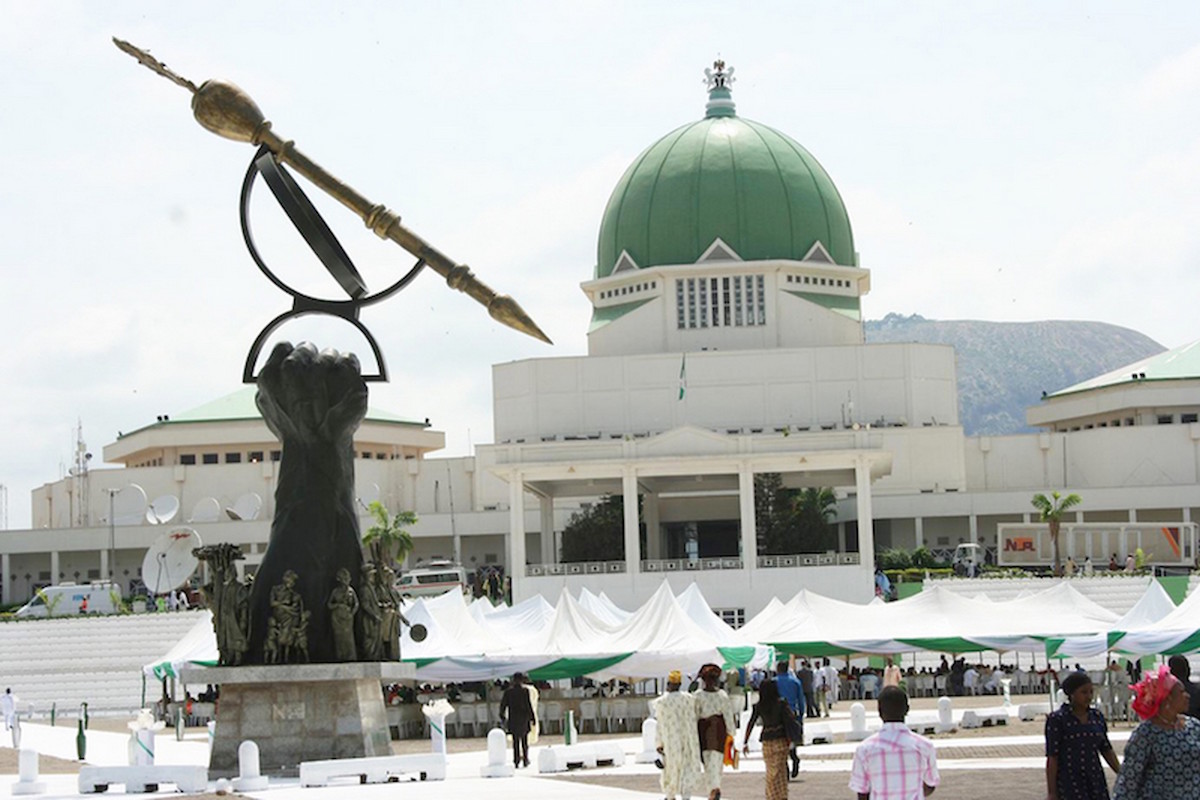Last week, at last, the public hearing by the Senate to review the 1999 Constitution kicked off in many centres across the nation. From my vantage perch, I noted lots of toing and froing among politicians, civil rights activists and others, who may be your usual busybodies, championing one cause or the other. The causes are as disparate as you would imagine. The cacophony of voices reminds one of the parable of the elephant and a group of blind men.
Readers might be familiar with this parable as I have used it in these pages before. The story relates to a group of blind men who had never known an elephant and stumbled on one. They tried to understand what it is by feeling parts of its huge body. The blind man who touched the trunk said, it was a snake, while the next who felt the leg asserted that it was a tree trunk. The one whose hand fell on the side of the elephant said it could be a wall. The other blind man who touched the ear was definite that it was a fan, while the next one who held the tail said that it couldn’t have been anything but a rope. The last one whose hand felt the tusk was definite that it was a spear. Each of the blind men continued to be assertive in this manner until the situation was saved by one clear-eyed man who looked at the elephant as a whole and explained it away.
- Emulate Ahmadu Bello, ex-CJN Aloma tells leaders
- Blueprint Newspapers holds 10th anniversary, awards ceremony June 3
The variety of demands are mind-boggling ranging from requests for new states and local governments to increase in derivation funds, devolution of powers to states, adoption of state police, etc. The demands are as varied as you can imagine. We will rely on our senators to be our clear-eyed persons, hoping that they will sift through tons of paper work adroitly, adjudicate impartially and do the needful.
Interestingly enough, there is the loud and tenacious minority that do not believe that this is even the path to take on the journey to restructure. They persist on the line of argument that the 1999 Constitution is a replica of the 1979 Constitution which was imposed by the military and thus cannot be said to be representative of the peoples’ wish. Not exactly, said Mohammed Abba Gana, former FCT Minister, in a well-written paper he presented last week at the sitting of the Bauchi zone. I was privileged to have access to the paper and can share excerpts with the readers:
“Questions are being asked and critical voices raised about the integrity of the 1999 Constitution. The contention is that the constitution was imposed by the military.
“I want to say that at the present level of our nationhood it’s really too late for us to wish away the Nigeria military’s involvement in government and their enormous contribution to the political, social, and economic development of the country. They created the first 12 states, increased it to 19, then to 30 and finally 36 States of Nigeria. At every stage no ethnic group had ever rejected these states on the basis of being created by the military. The military again came up with far-reaching local government reforms removing the powerful but unelected Emirs, Obas, Obis, Ezes, Chiefs etc. from the local government administration and introduced elected chairmen and councillors. Now there are 774 LGAs in Nigeria all created by the military. No ethnic or interest group has rejected any of these 774 LGAs on the basis of being created by the military. The military has created and largely built the FCT Abuja. No ethnic or interest group has rejected it, as far as I know on the basis of being created by the military.
“The military governments also made thousands of top-level appointments, mostly civilians, into government ministries, departments and agencies. I am not sure if significant number of people had rejected such appointments on the basis of being offered by the military. The military governments at the federal and state levels at various times had conducted diverse kinds of transactions involving billions of dollars. No country had refused doing business with Nigeria on the basis of being controlled by the military from time to time.
“For now, we have duly elected members of NASS and the 36 State Houses of Assembly. And citizens from their constituencies have not recalled any of them for any reason for the time being. Therefore, it’s their constitutional duty to go ahead with ongoing amendment of the 1999 Constitution.
“The states and LGAs, all created by the military, are still existing. No individual or group has gone to court to challenge their creation by the military through the instrumentality of decree which means the people’s acceptance of the military’s creation of states and LGAs by decree. Since no individuals or interest groups had challenged the integrity of the 1999 Constitution in court and gotten court ruling in their favour we should all accept it and continue our amendment and move on.
“Therefore, Nigeria military’s past involvement in our governance processes have become part and parcel of our nation’s history and their actions and signatures when they were in government must be accepted as de jure and de facto for all intents and purposes.”

 Join Daily Trust WhatsApp Community For Quick Access To News and Happenings Around You.
Join Daily Trust WhatsApp Community For Quick Access To News and Happenings Around You.


